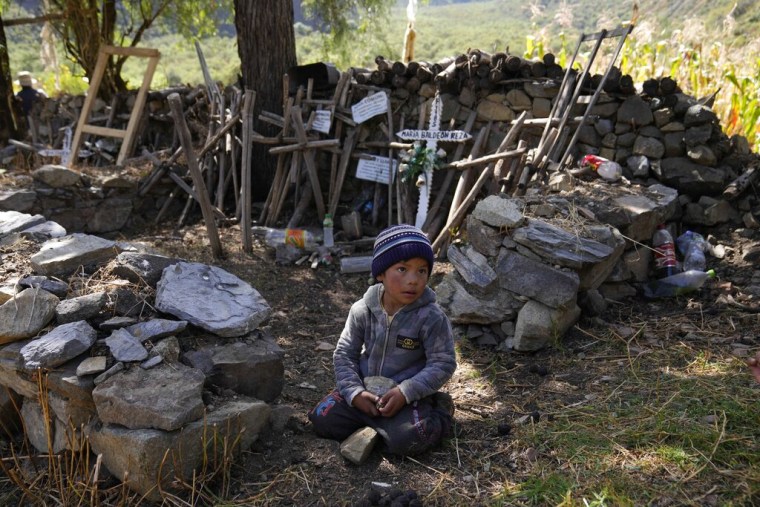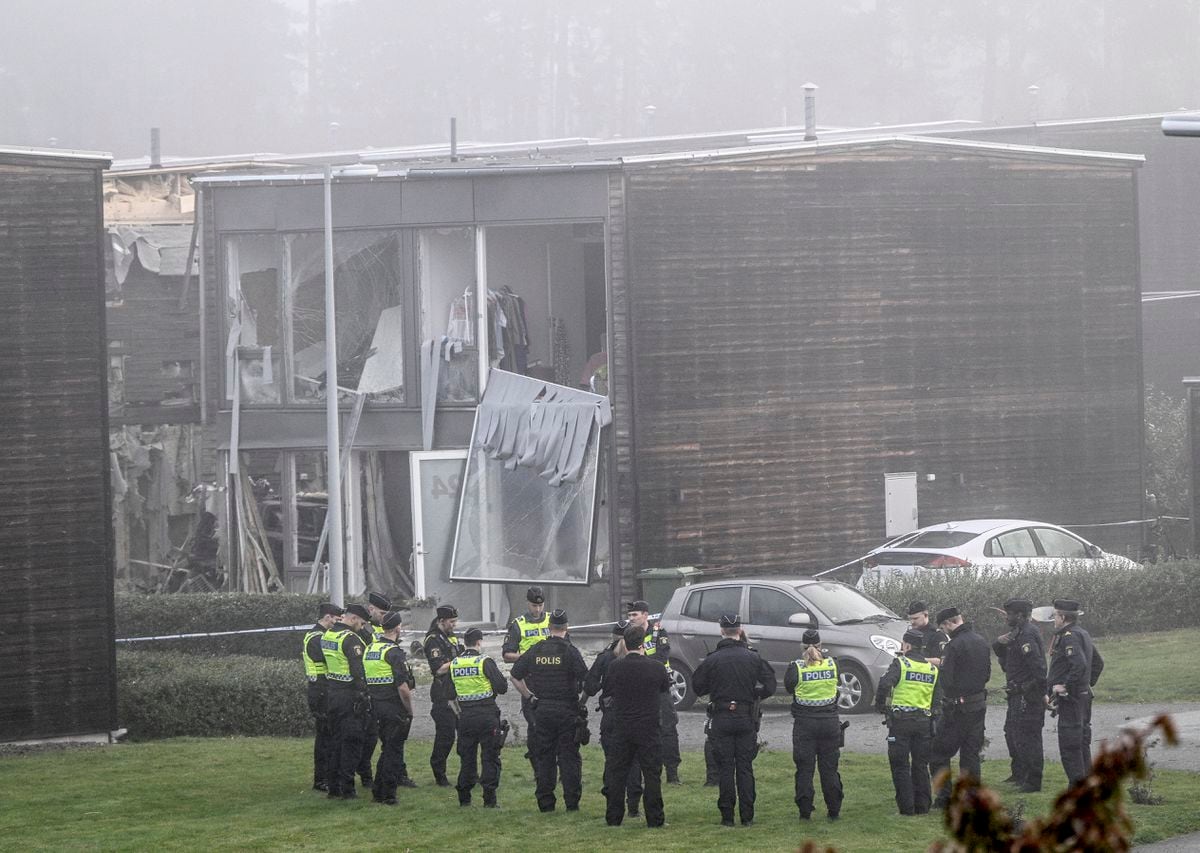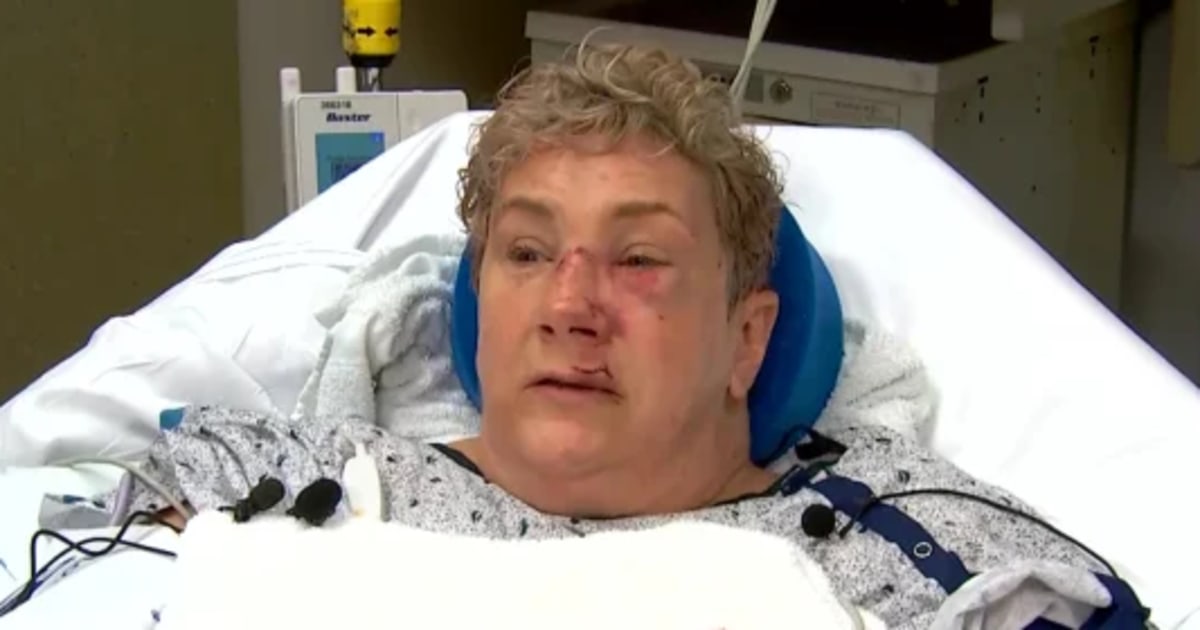By Franklin Briceño and Martin Mejía -
The Associated Press
ACCOMARCA, Peru — Justa Chuchón escaped assassination four times during Peru's internal armed conflict.
On Friday, 37 years after a bloody massacre, she will attend the funeral of dozens of residents of her hometown in the Andes, where one of the worst crimes committed by the Army occurred.
After a ceremony in the Accomarca square in the Ayacucho region, the 48-year-old mother of two walked with many through the streets of her town, whose name has remained for decades as a symbol of citizen persistence to achieve justice. in the face of military brutality.
"Finally our countrymen, friends and neighbors will find rest," Justa said.
The coffins for 80 residents
(of the 114 killed in the town between 1980 and 2000) were buried in a cemetery built on a former military base that
was used as a torture center four decades ago
.
In one of the coffins are the remains of a woman and her unborn child.
Of the total of crates, there are 37 that contain bones identified by DNA and correspond to part of the 69 murdered in the great massacre of August 14, 1985. Another 43 coffins contain clothing of those murdered and in other cases rosaries because they do not even have the clothes.
[The dream of these emigrants died with bullets and flames in Tamaulipas. Their families are still waiting "even if it's a little ash"]
In the 1980s, the Shining Path set up clandestine bases in Accomarca, assassinated authorities, and forced farmers to feed them on pain of death.
In response, the Army began to kill, rape and rob peasants, accusing them of being terrorists.
The citizens of Accomarca received death threats from both the terrorists and the soldiers.
Rosa Ramírez cries after seeing the remains of her sister Primitiva Ramírez, killed during the war against the Shining Path, in Accomarca, Peru, on May 18, 2022. AP
The agricultural, livestock and business activities of many Quechua-speaking Peruvians were affected after the start of the armed struggle of Sendero Luminoso against the State in 1980, a war that caused stories of uprooting, pain and struggle like Justa's.
He was ten years old when in 1983 two soldiers entered his house in Accomarca and one crushed his chest with the muzzle of his rifle.
After kicking her, he ordered her and her brothers to go out and collect and bury 11 bodies of civilians executed in the street, including two teachers with their wives and children and a university student with his ears cut off, all accused of being members of the Shining Path.
She said that at that time it was already said that the military raped women indiscriminately.
That is why her older sister once dressed up in her grandmother's clothes to confuse the uniformed men and avoid harassment.
In July 1985, when Justa was 12 years old, the military again broke into a trade fair in Accomarca.
A group of hers chased her and her cousin with rifle shots.
The teenagers ran to the house of an aunt but discovered that other soldiers were raping her in front of her young children.
Two soldiers took her and her cousin into two rooms of the house and abused them as well.
She was wearing a red skirt with light blue edges that her mom had given her for her recent birthday.
"I didn't know whether to scream or cry, I asked him not to kill me," she recalled.
Then the rapist decided to steal the food that was stored in the house and she escaped.
The soldier began to shoot her again while she fled through a thicket full of thorns that stuck in her legs, arms and feet until she passed out after running for minutes.
When he woke up his knees were bloody, he washed his wounds in a stream and on the way home he did not tell his parents about the abuse for fear they would complain and be killed.
A boy plays with stones at the site where people were killed in a mass execution and buried during the war against the Shining Path in Llocllapampa, near Accomarca in Peru, on May 19, 2022.AP
A thorn, which has not been able to be removed until now, was embedded in his right ring finger and caused him persistent pain for a month.
The afternoon before the massacre, he saw the soldiers arrive in the distance because he was at his house, located on an elevated area from where he could see the town.
The shooting started early on August 14.
“Their weapons shone, their bullets burst,” Justa recalled.
Her father, a harpist who animated rural parties with her mother, had left the town with his wife to play music in a distant area and she was left in the care of her grandmother.
Going to another town saved her parents' lives.
Her other two brothers were also saved from dying because they had migrated to Lima.
[The horror of the disappearances in Mexico: more than 73,000 people not located]
The soldiers grouped 69 neighbors that included the elderly, women (some pregnant) and children.
Several of them were raped and then made to enter with the others in three houses where they were shot, dynamited and set on fire.
Justa said that she saw a child who came crying to the outside of one of the burning houses looking for his mother and that the soldiers grabbed him by the hands and feet and threw him into the fire.
Juliana Baldeón, 80, tried to put out the flames with a bowl of water and was shot dead.
"The smell was like pork rinds," recalled Justa.
The flames of the burning houses shone throughout that night in the town, where there was no public lighting.
A week later, when their parents returned and witnessed the horror, they decided to flee to Lima, where the bus terminals received hundreds daily fleeing from other sources of violence in the Andes and the Amazon.
Empty graves at a cemetery where the remains of victims killed during a massacre will be buried after being handed over to families in Accomarca, Peru, on May 19, 2022. AP
Justa started working as a domestic worker for a candy merchant who spoke Quechua, like her.
She washed, swept and helped sell from dawn.
From a position in the center of Lima, she noticed that almost no one answered her greeting and they made fun of her Andean accent.
She ate little, she slept badly and received almost no salary.
"My dad couldn't get a job, my brothers were hungry, he wasn't home, he didn't have a space to go play or study," he said.
He also had a constant desire to bathe.
"I wanted to wash myself, clean myself, scratch myself, constantly, I felt dirty... At night I cried in silence, I had nightmares of everything that had happened to me, I saw the soldiers coming towards me and I woke up," he recalled.
His father (who, in addition to being a musician, was a merchant, mason and carpenter) left Lima and returned with his mother to Accomarca.
Justa did not return out of fear.
When her father returned, the soldiers called him to the base to make doors and build rooms, but they did not pay him for his services.
On the contrary, they accused him of being a terrorist and tortured him in the same rooms he had built.
He was sent to jail for over a year and had his ribs broken.
Justa lost contact with her father, who survived the ordeal but now has Parkinson's in Accomarca.
In the capital, the relatives of those killed did not collapse, they denounced the massacre before Congress.
A commission questioned officer Telmo Hurtado, then 23 years old,
who assumed responsibility for the crime.
"You can't trust a woman, an old man or a child," said Hurtado, who had received training in counterinsurgency techniques at a US military institution in Panama called the School of the Americas.
The press called him "the butcher of the Andes."
With his abundant mustache, his cropped hair and aviator sunglasses, he became the symbol of impunity.
Justa continued to live in Lima and thought that her destiny would never be in danger again, but on November 3, 1991, when she was 18 years old, a friend who rented a room in a multi-family dwelling in a poor area called Barrios Altos invited her to a party in the courtyard of the building to raise money and fix the drain.
Both were determined to go, but first they visited the friend's older brother in another area of the capital and he asked them both to stay for dinner.
Finally the young women did not go to the party.
Empty graves at a cemetery on what used to be a military base where the remains of slain victims will be buried in Accomarca, Peru, on May 19, 2022.AP
The next day he was surprised when the newspapers reported that a group of hooded men with rifles had entered the party and killed 15 neighbors, including an eight-year-old boy.
The new massacre, known judicially as Barrios Altos, was carried out by soldiers who acted clandestinely and received the support of then President Alberto Fujimori (1990-2000).
Over time, this massacre and another in which nine students and a university professor died led to a 25-year sentence against the former president.
The relatives of the Accomarca victims continued to seek justice, but did not obtain it during the Fujimori government.
Hurtado was not sentenced for the murders, only receiving a four-year sentence for failing to report the massacre to his superiors, and continued to rise.
[“I wanted a better life.” This is how 13 Central American migrants died shot and burned in Mexican drug territory]
He even fought in a war against Ecuador in 1995. He retired from the Army in 1999 after being discovered active.
Later he went to live in Miami, but the family's calls for justice paid off and he was extradited in 2011. Then he changed his story and became the first official in Peru to accuse his own institute of ordering extrajudicial executions.
“I have not had any kind of insanity.
I followed orders... It was not something isolated, but a job ordered by superior officers,” Hurtado said in a 2014 psychiatric evaluation conducted by the prosecution.
He said that in 1985 his superiors told him "you have to play crazy, otherwise we're all going to be prosecuted," according to a copy of the document obtained by The Associated Press.
A woman lights candles in honor of people who were killed during the war against the Shining Path, during a vigil in Accomarca, Peru, on May 18, 2022.AP
His mustaches had been cut, he had long hair tied in a ponytail and an earring in one ear.
Justa and other relatives of the victims began to attend court sessions.
She observed that one of the three judges fell asleep when the victims' lawyers presented their arguments and on the benches of the court some soldiers insulted them, calling them terrorists.
The process continued to advance and a few months before the sentencing in September 2016 (31 years after the massacre) the survivors celebrated carnival in a bullring in Lima.
In the choreography they incorporated scenes of the massacre and of the trial where
the judges fell asleep and received money from the military
, who were later declared innocent amid whistles of disapproval.
"It was a form of protest," Justa said.
The judges finally sentenced Hurtado to 23 years in prison, as well as nine others, including their boss, retired General Wilfredo Mori, who gave the verbal order for the massacre and was sentenced to 25 years in prison.
Mori, 87, and four other convicts are fugitives.
"What's the use of condemning them if they're still free?" the woman lamented.



/cloudfront-eu-central-1.images.arcpublishing.com/prisa/3YAXWGVZTFB6LAZHB6LUMQHDZI.JPG)

/cloudfront-eu-central-1.images.arcpublishing.com/prisa/NUZJBZKFJJC3TORYXB6GF6WOEA.jpg)



/cloudfront-eu-central-1.images.arcpublishing.com/prisa/FGG3RYX4FGONWMZRVKVKHSU33I.jpg)